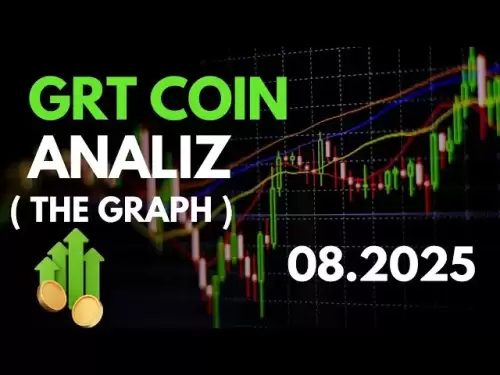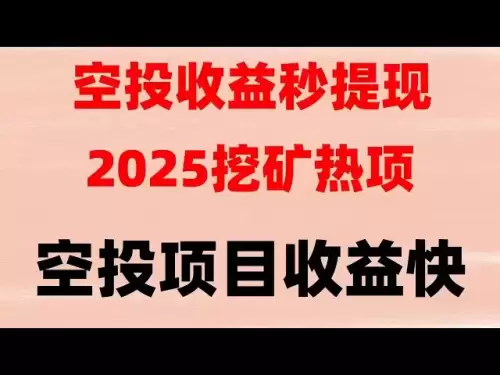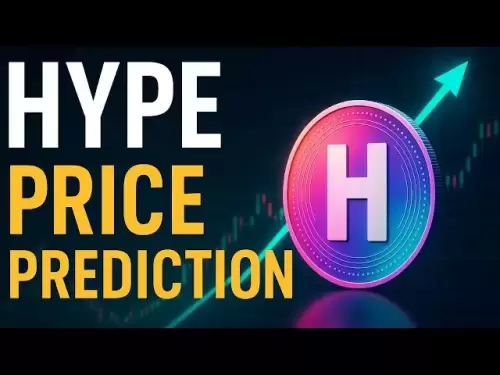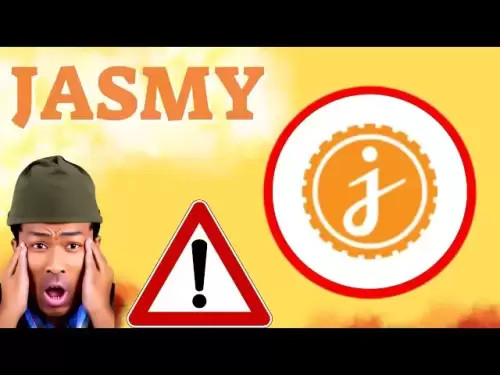-
 Bitcoin
Bitcoin $119300
2.40% -
 Ethereum
Ethereum $4254
-0.20% -
 XRP
XRP $3.184
-1.38% -
 Tether USDt
Tether USDt $1.000
0.00% -
 BNB
BNB $803.9
0.58% -
 Solana
Solana $183.1
1.50% -
 USDC
USDC $0.0000
0.01% -
 Dogecoin
Dogecoin $0.2339
-2.87% -
 TRON
TRON $0.3384
0.88% -
 Cardano
Cardano $0.8018
-0.29% -
 Hyperliquid
Hyperliquid $45.13
3.14% -
 Chainlink
Chainlink $22.10
0.96% -
 Stellar
Stellar $0.4439
-0.94% -
 Sui
Sui $3.875
-0.73% -
 Bitcoin Cash
Bitcoin Cash $570.7
0.24% -
 Hedera
Hedera $0.2589
-2.90% -
 Ethena USDe
Ethena USDe $1.001
-0.01% -
 Avalanche
Avalanche $23.83
-1.73% -
 Litecoin
Litecoin $123.8
2.61% -
 Toncoin
Toncoin $3.351
-1.13% -
 UNUS SED LEO
UNUS SED LEO $9.103
1.13% -
 Shiba Inu
Shiba Inu $0.00001356
-1.40% -
 Uniswap
Uniswap $10.93
-0.19% -
 Polkadot
Polkadot $4.057
-1.97% -
 Dai
Dai $1.000
0.01% -
 Cronos
Cronos $0.1646
4.66% -
 Ethena
Ethena $0.7974
8.11% -
 Pepe
Pepe $0.00001208
-2.89% -
 Bitget Token
Bitget Token $4.445
-1.70% -
 Monero
Monero $268.8
-2.00%
Which Request (REQ) currency wallet is the best?
Ledger Nano X, a military-grade secure hardware wallet, is recommended for storing Request (REQ) tokens due to its robust security features and ease of management through its mobile companion app.
Dec 25, 2024 at 07:07 am
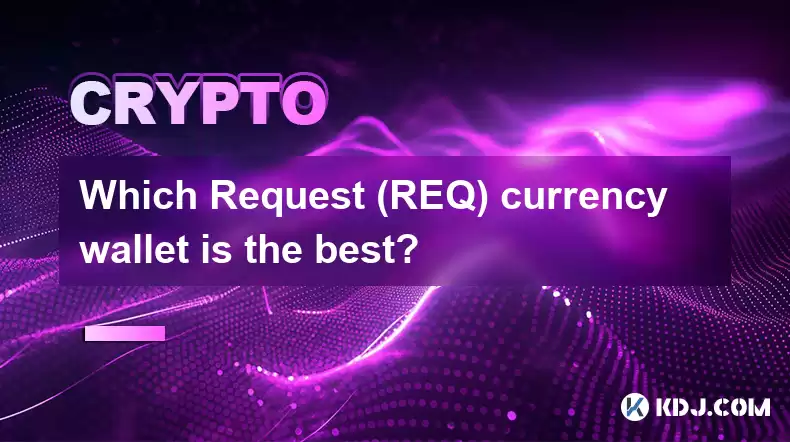
Key Points:
- Features to Consider in Choosing a Request (REQ) Currency Wallet
- Overview of Top Request (REQ) Currency Wallets
- Factors to Consider When Selecting a Request (REQ) Currency Wallet
- Benefits of Using a Request (REQ) Currency Wallet
- Frequently Asked Questions (FAQs) about Request (REQ) Currency Wallets
Overview of Top Request (REQ) Currency Wallets:
1. Ledger Nano X
- Hardware wallet with military-grade security
- Supports multiple cryptocurrencies, including REQ
- Offers a companion mobile app for easy management
2. Trezor Model T
- Another highly secure hardware wallet
- Open-source design for transparency
- Features a touchscreen for intuitive navigation
3. Exodus
- Multi-asset software wallet with a user-friendly interface
- Supports over 200 cryptocurrencies, including REQ
- Offers built-in exchange for convenient token conversions
4. Atomic Wallet
- Desktop and mobile wallet with cross-chain compatibility
- Staking and earning opportunities available within the wallet
- Supports a wide range of cryptocurrencies, including REQ
5. Guarda
- Versatile wallet available as a web, desktop, and mobile version
- Supports over 500 cryptocurrencies, including REQ
- Offers advanced features like multi-signature support
Factors to Consider When Selecting a Request (REQ) Currency Wallet:
- Security: Prioritize wallets with robust security measures, such as hardware wallets or those with multi-factor authentication.
- Reputation: Choose wallets from reputable providers with a track record of reliability and safety.
- User Interface: Select a wallet with a user-friendly interface that simplifies management and transactions.
- Accessibility: Consider the availability of the wallet on multiple platforms (web, desktop, mobile) for convenience.
- Fees: Compare the transaction fees associated with different wallets before committing to one.
Benefits of Using a Request (REQ) Currency Wallet:
- Control over funds: Retain full ownership of REQ tokens and avoid the risks associated with custodial exchanges.
- Increased security: Wallets provide layers of protection against hacking and theft, reducing the potential for unauthorized access.
- Privacy: Non-custodial wallets enhance privacy by eliminating the need to share personal information with third parties.
- Portability: Mobile wallets allow for easy access and management of REQ tokens from anywhere.
- Support for Decentralized Applications (DApps): Wallets provide access to DApps built on the Request Network, expanding the functionalities available.
FAQs:
Q: What is a Request (REQ) currency wallet?
A: A Request (REQ) currency wallet is a software or hardware tool that stores REQ tokens and allows users to manage, send, and receive them securely.
Q: What are the advantages of using a hardware wallet for REQ?
A: Hardware wallets offer superior security as they store private keys offline, making them less vulnerable to hacks and theft.
Q: Is it necessary to have a Request (REQ) currency wallet to use the Request Network?
A: While a wallet is not required to interact with the Request Network, it is highly recommended to store REQ tokens securely in a personal wallet.
Q: Which features should I look for when choosing a Request (REQ) currency wallet?
A: Consider security measures, user interface, platform availability, fees, and support for DApps when evaluating wallet options.
Q: Are there any disadvantages to using a Request (REQ) currency wallet?
A: Potential drawbacks include the need for proper setup and maintenance, as well as the risk of losing access to funds if the wallet is compromised or misplaced.
Disclaimer:info@kdj.com
The information provided is not trading advice. kdj.com does not assume any responsibility for any investments made based on the information provided in this article. Cryptocurrencies are highly volatile and it is highly recommended that you invest with caution after thorough research!
If you believe that the content used on this website infringes your copyright, please contact us immediately (info@kdj.com) and we will delete it promptly.
- Shiba Inu's Comeback Trail and the Meme Coin Mania: Can $SHIB Deliver a 12,000x Return?
- 2025-08-11 18:30:11
- Pudgy Penguins, Bitcoin Penguins, and the $22M Meme Coin Mania: A New York Perspective
- 2025-08-11 17:10:11
- Bitcoin L2 Heats Up: SatLayer (SLAY) Lists on KuCoin Amidst Layer-2 Boom
- 2025-08-11 16:50:12
- Ethereum, Coin Market Cap, and Solfart Token: A Wild Ride in the Crypto Universe
- 2025-08-11 17:50:12
- Riding the ETH Wave: GoldenMining's ETH Contracts and the Price Surge
- 2025-08-11 17:55:12
- DOGE, SHIB, and the Crypto Landscape: What's Hot and What's Not
- 2025-08-11 18:01:04
Related knowledge

How to purchase Aragon (ANT)?
Aug 09,2025 at 11:56pm
Understanding Aragon (ANT) and Its PurposeAragon (ANT) is a decentralized governance token that powers the Aragon Network, a platform built on the Eth...

Where to trade Band Protocol (BAND)?
Aug 10,2025 at 11:36pm
Understanding the Role of Private Keys in Cryptocurrency WalletsIn the world of cryptocurrency, a private key is one of the most critical components o...

What is the most secure way to buy Ocean Protocol (OCEAN)?
Aug 10,2025 at 01:01pm
Understanding Ocean Protocol (OCEAN) and Its EcosystemOcean Protocol (OCEAN) is a decentralized data exchange platform built on blockchain technology,...

Where can I buy UMA (UMA)?
Aug 07,2025 at 06:42pm
Understanding UMA and Its Role in Decentralized FinanceUMA (Universal Market Access) is an Ethereum-based decentralized finance (DeFi) protocol design...

How to buy Storj (STORJ) tokens?
Aug 09,2025 at 07:28am
Understanding Storj (STORJ) and Its Role in Decentralized StorageStorj is a decentralized cloud storage platform that leverages blockchain technology ...

Where to find the best price for Audius (AUDIO)?
Aug 11,2025 at 04:01pm
Understanding the Basics of Ethereum StakingEthereum staking refers to the process of locking up ETH tokens to support the security and operations of ...

How to purchase Aragon (ANT)?
Aug 09,2025 at 11:56pm
Understanding Aragon (ANT) and Its PurposeAragon (ANT) is a decentralized governance token that powers the Aragon Network, a platform built on the Eth...

Where to trade Band Protocol (BAND)?
Aug 10,2025 at 11:36pm
Understanding the Role of Private Keys in Cryptocurrency WalletsIn the world of cryptocurrency, a private key is one of the most critical components o...

What is the most secure way to buy Ocean Protocol (OCEAN)?
Aug 10,2025 at 01:01pm
Understanding Ocean Protocol (OCEAN) and Its EcosystemOcean Protocol (OCEAN) is a decentralized data exchange platform built on blockchain technology,...

Where can I buy UMA (UMA)?
Aug 07,2025 at 06:42pm
Understanding UMA and Its Role in Decentralized FinanceUMA (Universal Market Access) is an Ethereum-based decentralized finance (DeFi) protocol design...

How to buy Storj (STORJ) tokens?
Aug 09,2025 at 07:28am
Understanding Storj (STORJ) and Its Role in Decentralized StorageStorj is a decentralized cloud storage platform that leverages blockchain technology ...

Where to find the best price for Audius (AUDIO)?
Aug 11,2025 at 04:01pm
Understanding the Basics of Ethereum StakingEthereum staking refers to the process of locking up ETH tokens to support the security and operations of ...
See all articles





















